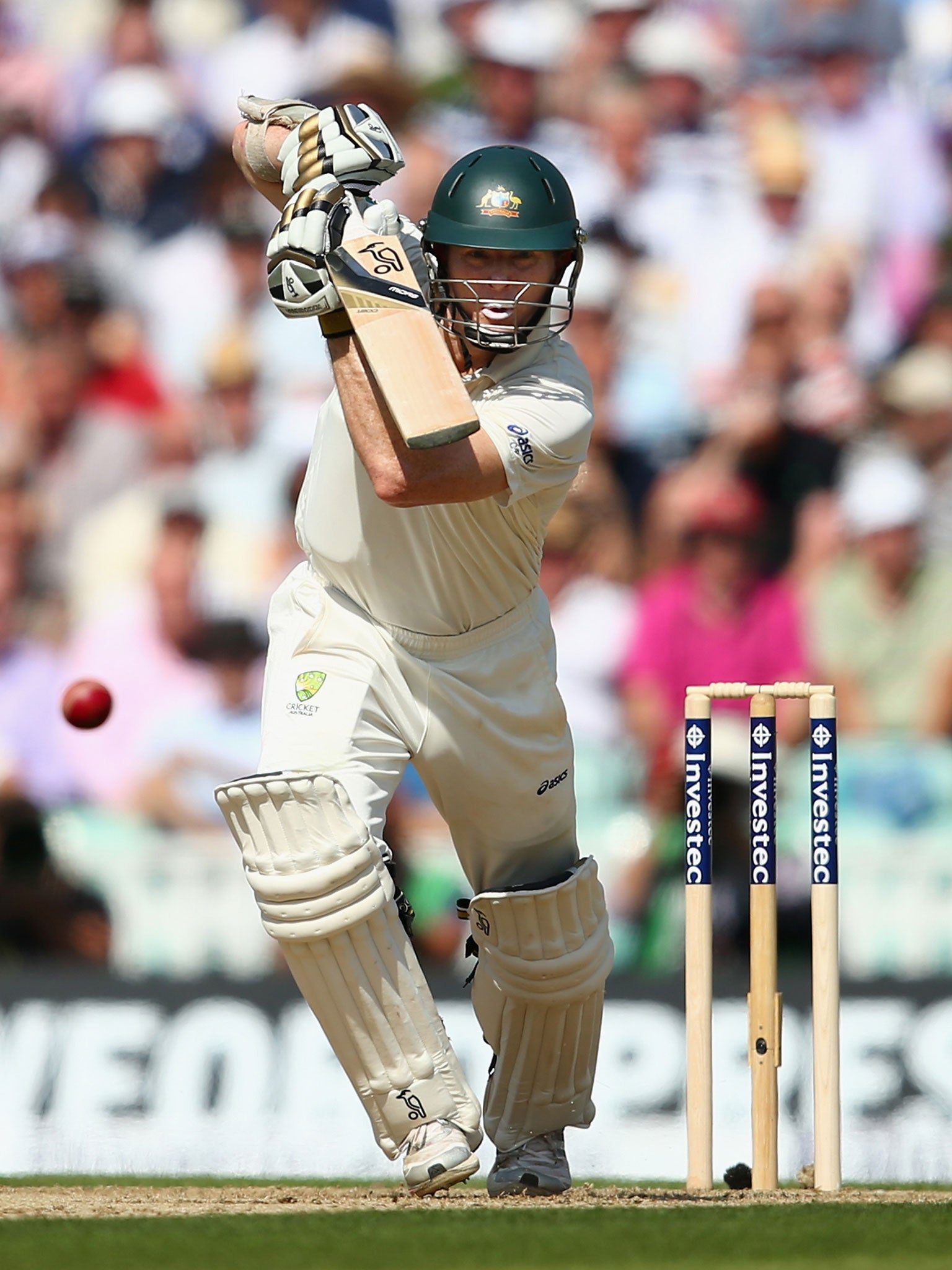Ashes 2013: Michael Clarke’s Australia have learnt on the job but still look worryingly off the pace
The Aussie Angle: Starc is good in patches, though there is no warning when they’ll appear

Australia started the Ashes series with the quality and depth of their pace bowling as their greatest strength but substantial questions over the top order batting. They ended the series with the first five batsmen settled but real doubts over the identity and durability of their best pace attack.
In between, they lost three of the first four Tests without doing much wrong apart from finding three bad hours at the worst possible junctures during a series that has only occasionally risen above the mundane.
Good teams anticipate, identify and grasp the critical moments, which is why England retained the Ashes by a comfortable margin. Australia were playing catch-up from the instant they sacked their coach 16 days out from the first engagement.
Of course, Australia can point to plenty of ill-fortune along the way – Stuart Broad’s reprieve at Trent Bridge, the Chris Rogers full toss lbw at Lord’s, Tony Hill, the Manchester rain... The reality is that the margin might be bloated but it is not mistaken.
Australia’s team profile at the end of this series is a marked improvement on the unbalanced lottery combinations that were overwhelmed in India earlier this year. Their biggest challenge now is to sustain the momentum of the past three matches when the return series starts in three months’ time.
The Oval shenanigans last night were a taste of the likely approach this winter where Michael Clarke and Darren Lehmann, in the spirit of their main adviser and de facto captain, coach and chairman of selectors, Shane Warne, will be prepared to risk defeat in the search for victory.
Mid-range teams are obliged to play that way. The Australian team of 2006-2007 which won the Ashes 5-0 did not have to take risks. They simply unbottled champion after highly motivated champion whose combined worth was even greater than the immense sum of their parts.
The 2013 Australian team is learning on the job, which is a difficult task when the employees don’t know whether they are required from week to week. There have been plenty of bright spots throughout the series. Chris Rogers has a tight technique and a feel for the game honed during thousands of hours of front-line experience.
He also achieved the rarest of goals– having an England crowd urge him to a century as happened in such draining circumstances at Chester-le-Street. Rogers has been a find, albeit one sitting under the noses of the selectors for a decade or so, but could offer stability at the top of the order for the next year or two.
Steve Smith has provided some flair and fighting spirit. Shane Watson is reborn, though, as always, the birth pains may catch up with him at some point, while David Warner has no shortage of that favourite quality sought by recent Australian selectors – the X factor.
The greatest issue for Australia at the mid-point in the back-to-back Ashes series is the one that caused the fewest headaches only six or seven weeks ago. Ryan Harris is a muscular match-changer and the spearhead of an attack strong enough to leave him out at Trent Bridge.
Yet since that indulgence, Australia have lost James Pattinson and Jackson Bird from the tour and young gun Pat Cummins to growing bones as yet unsuited to the rigours of bowling at 90mph.
Mitchell Starc is good in patches, though there is little warning when and where those patches are about to appear, while the wholehearted Peter Siddle is a superb support act but rarely the main player.
There are other options in domestic ranks but no one who offers the pace and menace of Harris or Pattinson’s ballistic missiles.
The answer could be Mitchell Johnson, of course, but that would require a question that even a resurgent Australia might be reluctant to ask.
John Townsend is cricket writer at the West Australian
Join our commenting forum
Join thought-provoking conversations, follow other Independent readers and see their replies
Comments
Bookmark popover
Removed from bookmarks